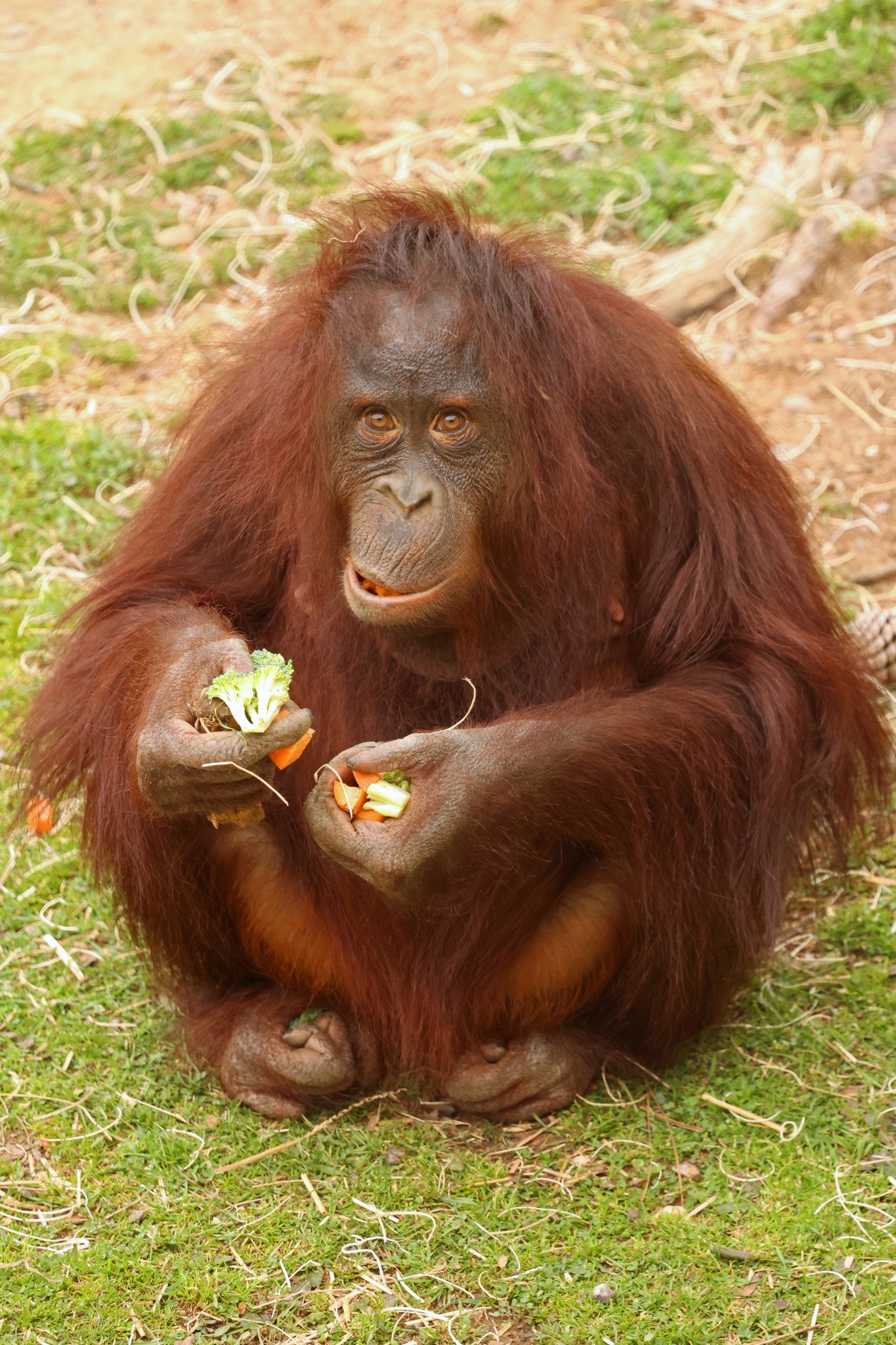LITTLE ROCK (October 17, 2025)— Kasih, the six-year-old orangutan at the Little Rock Zoo, may be the youngest member of our orangutan family, but she’s already making a big impression. From her playful personality to her impressive learning abilities, Kasih gives visitors a close-up look at how orangutans grow, learn, and thrive.
Orangutans: Semi-Solitary and Smart
Unlike many primates, orangutans are semi-solitary, meaning they don’t form large, social groups like many other primates. Adult orangutans usually live alone, except for mothers caring for their young. Social interactions typically involve mother–offspring pairs or temporary gatherings when resources are abundant. Young orangutans, like Kasih, remain with their mothers for many years—often 8 to 10—to learn essential survival skills, from climbing and foraging to using tools and navigating their environment.

Learning Through Positive Reinforcement
Recently, Kasih had a routine medical exam—and it couldn’t have gone better. Not only did she receive a clean bill of health, but she also voluntarily accepted an injection, calmly allowing a member of her care team to give her a shot. This kind of cooperation doesn’t happen by accident. It’s the result of patient, consistent positive reinforcement training, something Kasih has excelled at since she was very young.
At the Little Rock Zoo, all animal training is based on positive reinforcement—a method that emphasizes choice, trust, and reward. Animals aren’t forced to do anything. Instead, they’re invited to participate in behaviors and rewarded when they choose to cooperate. For example, during medical training, Kasih might be asked to open her mouth or hold still for an injection. When she does, she earns additional treats and attention as a reward.
Positive reinforcement training is used by animal care professionals throughout the zoo and aquarium community because of its effectiveness and the strong, trusting relationships it builds between animals and their caretakers. For Kasih, this approach has been especially rewarding. She has learned quickly by observing her mother and eagerly engages with her care team. Training keeps her healthy and safe, strengthens her bond with her keepers, and enriches her daily life.
A Playful Personality
Kasih’s curiosity and playful spirit make her a joy to watch. She loves chalk enrichment, enjoys experimenting with her food, and isn’t shy about expressing her opinions. Her caretakers have noticed that she’s not particularly fond of bok choy—when it’s offered, she makes her feelings clear by tossing it into the pool instead of eating it.

Orangutans and Conservation
Orangutans face serious threats from habitat loss, deforestation, and the illegal wildlife trade. One of the biggest drivers of habitat destruction is unsustainable palm oil production. Rainforests in Borneo and Sumatra—home not only to orangutans but also to other endangered species like Sumatran rhinos and tigers—are frequently cleared to make way for oil palm plantations. Palm oil is found in roughly half of the products we use, from food and snacks to cleaning supplies and cosmetics, and global demand has fueled these harmful practices.
Protecting orangutan habitats starts with supporting sustainably sourced palm oil. The Roundtable on Sustainable Palm Oil (RSPO) sets global standards for environmentally and socially responsible palm oil production. Choosing RSPO-certified products encourages companies to adopt sustainable practices that reduce deforestation, protect wildlife, and support local communities.
The Little Rock Zoo is proud to participate in Orangutan SAFE (Saving Animals From Extinction), a collaborative conservation initiative through the Association of Zoos and Aquariums (AZA). This program connects accredited zoos to raise awareness, support habitat protection, and promote sustainable practices that help wild orangutans survive.
A key tool in this effort comes from Cheyenne Mountain Zoo, which has developed a free sustainable palm oil shopping guide mobile app. The app helps consumers identify which companies are committed to responsibly sourced palm oil. It has been downloaded over 155,000 times and is now being promoted by zoos across the country. By highlighting RSPO-certified products, the app makes it easy to make informed shopping choices. Each time you pick a sustainable product, you directly support orangutan conservation and send a message to companies that responsible production matters.
Small, informed choices can make a big difference. By checking for sustainable palm oil in candy, snacks, and household products, you help protect wild orangutan habitats for generations to come. With Halloween and the rest of the holidays just around the corner, even the candy you buy could have an impact—so consider choosing products that support orangutans and their rainforest homes.
By supporting sustainable palm oil and responsible practices, you help protect wildlife and the wild places they call home. And when you visit Kasih and her family at the Little Rock Zoo, you’re not just enjoying a day at the Zoo—you’re directly supporting the conservation work that keeps these animals and their habitats safe for generations to come.



